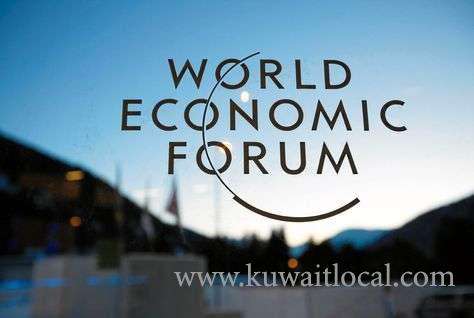Latest News
- Court Sentences Bank Employee To 5 Years For Embezzling 100,000...
- Fake ‘Sheikh’ Sentenced To 2-yr As Court Overturns Verdict
- Justice Ministry New Service On The Sahel App
- Ministry Probes 68 Cases Of Illegal Charity, Funds Collection
- Globally, Kuwait Is Among The Top Consumers Of Incense And Oud O...
- Decrease Seen In Foreign Investment
- Kuwait Customs Seized 2 Containers Laden With Tobacco At Shuwaik...
- Unpaid Salaries, Accountant Beaten Up By Workers
- The Sahel App Was Not Hacked, A Spokesman Claims
- Four Expats Arrested For Stealing Copper Cables Worth 60,000 Din...
- Indian National Died In Abdalli Car Accident
- Work Permits And Foreign Worker Transfers Are Amended By PAM
Uae Tops Middle East Rankings For Information And Communications Technologies Economic Benefits

The UAE is leading the Arab world when it comes to generating economic impact from investments in information and communications technologies (ICT), according to a new study.
The World Economic Forum’s Global Information Technology Report 2016 ranked the UAE 26th globally, just ahead of Qatar (27th) while Kuwait (61st) was one of the world's biggest improvers, up by 11 places on the previous list.
The study said that while governments are lagging behind in terms of digital adoption, the business community in Kuwait is registering an increased weight on ICT in government vision and efforts to improve the regulatory environment. Globally, Finland, Switzerland, Sweden, Israel, Singapore, the Netherlands and the United States are leading the way.
On average, this group of high-achieving economies at the pinnacle of the report’s Networked Readiness Index (NRI) economic impact pillar scores 33 percent higher than other advanced economies and 100% more than emerging and developing economies.
The study named Singapore as the highest-placed country in the world when it comes to networked readiness. Finland, which topped the ranking in 2014, remains in second place for a second year in a row, followed by Sweden (3rd), Norway (4th) and the United States (5th), which climbed two places. Making up the rest of the top 10 were the Netherlands, Switzerland, the United Kingdom, Luxembourg and Japan.
According to the report, Europe remains at the technology frontier, with seven of the top 10 NRI countries. Malaysia leads the Emerging Asian economies in 2016 and moves up one spot to 31st position overall. The country continues to perform strongly, supported by a government which is fully committed to the digital agenda, the report added.
“The digital economy is an essential part of the architecture of the Fourth Industrial Revolution. In order for digital technology to continue contributing economic and social impact, societies need to anticipate its effects on markets and to ensure a fair deal for workers in digitised market environments. New models of governance will be key in this,” said Richard Samans, head of the Centre for the Global Agenda, member of the managing board, World Economic Forum Geneva.
SOURCE : ARABIANBUSINESS
Trending News
-
 Eid Al Fitr 2024: Crescent Moon Not Sighted In Sau...
08 April 2024
Eid Al Fitr 2024: Crescent Moon Not Sighted In Sau...
08 April 2024 -
 Kuwait Implements Home Biometrics Services Ahead O...
14 April 2024
Kuwait Implements Home Biometrics Services Ahead O...
14 April 2024 -
 When Will Eid Al Fitr 2024 Take Place In Qatar, Ba...
08 April 2024
When Will Eid Al Fitr 2024 Take Place In Qatar, Ba...
08 April 2024 -
 On Sunday, The Meteorological Department Warns Of...
07 April 2024
On Sunday, The Meteorological Department Warns Of...
07 April 2024 -
 Kuwait Airways Provides Update On Flight Schedule...
14 April 2024
Kuwait Airways Provides Update On Flight Schedule...
14 April 2024 -
 Gathering For Eid Al-Fitr Prayers: Kuwaiti Citizen...
10 April 2024
Gathering For Eid Al-Fitr Prayers: Kuwaiti Citizen...
10 April 2024 -
 Winners Of Kuwait National Assembly 2024 Elections
06 April 2024
Winners Of Kuwait National Assembly 2024 Elections
06 April 2024 -
 Kuwait Airways Introduces Convenient Home Luggage...
15 April 2024
Kuwait Airways Introduces Convenient Home Luggage...
15 April 2024 -
 An Egyptian Expat Dies At Kuwait's Airport
11 April 2024
An Egyptian Expat Dies At Kuwait's Airport
11 April 2024 -
 Bay Zero Water Park Kuwait: Summer Season Opens Ei...
11 April 2024
Bay Zero Water Park Kuwait: Summer Season Opens Ei...
11 April 2024












Comments Post Comment